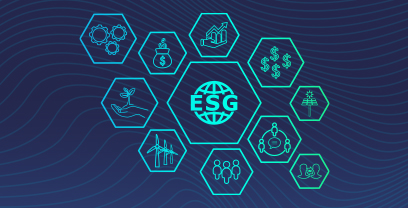|
The Forrester Wave™: Supplier Value Management Platforms, Q3 2024 See Report
Blog »
EMISSION: IMPOSSIBLE 4 Steps to Kickoff your Decarbonization Strategy

by Alex Saric
In recent years, sustainability has increasingly become a top priority for many organizations. The UN Climate Change Conference UK 2021 (COP26) resulted in another wave of agreements and net zero commitments. Many businesses, governments, and consumers are now acutely aware of the importance of taking action to prevent climate change.
One of the UK’s net zero pledges requires listed UK businesses to release public plans for reaching climate change targets by 2023. However, the required effort extends well beyond the four walls of an organization. Businesses must start looking to the supply chain to ensure this renewed focus on transparency and accountability. With this in mind, our research found far too few European suppliers are being regularly assessed on sustainability practices, with less than a quarter (24%) seeing themselves routinely measured on carbon emissions.
The new Ivalua 2021 Supplier Sustainability Report surveys suppliers across the UK, France, Germany and Switzerland, examining how collaboration can boost environmental initiatives. Importantly, the study demonstrates why more needs to be done across the supply chain to assess and measure green credentials regularly.
While making these changes is now imperative for helping prevent climate change, it can be difficult to know where to start when it comes to sustainable procurement. So, here are the three key areas organisations need to think about to conquer the environmental impact of their supply chains.
1. Measure suppliers on carbon emissions
Carbon emissions from the supply chain remain one of the biggest hurdles businesses face on their path to sustainability. In fact, most organizations report emissions from their supply chain are several times greater than from their direct emissions. But, our research found less than a quarter of suppliers say they are regularly measured on their carbon emissions.
It’s therefore essential that businesses regularly assess suppliers to ensure they are meeting carbon emission targets. Through working with immediate and sub-tier suppliers to routinely monitor critical areas for improving sustainability, organizations can ensure they drive real improvements in environmental practices.
2. Collaborate for a greener future
For any business looking to reduce their environmental impact, establishing communication on initiatives with suppliers should be a core part of their future operations. Yet currently, this line of alignment on green initiatives does not exist between many across the supply chain. For example, only one-in-ten (10%) of suppliers report that organizations always include sustainable practices in contracts and agreements.
Creating a dialogue with suppliers ensures that procurement teams can identify opportunities for innovation in a green supply chain that benefits all parties. Over a third of suppliers say that improving their ability to share information (35%) and collaborate with buyers on improvements (35%) would significantly increase their ability to deliver on climate-focused targets. Through this collaboration, the entire production process can benefit from improved efficiency and waste reduction.
3. Pick the right tools for the job
A smarter, data-driven approach to procurement can unlock many unseen benefits. This can include accessing actionable insights for driving continuous improvement on sustainability targets, or simply facilitating collaboration on new ideas. However, a lack of the right procurement tools restricts businesses from accessing these benefits. Our report demonstrated that nearly seven-in-ten (69%) companies said collaborating with buyers on sustainability should be made easier.
Using smart procurement solutions ensures that organizations communicate clearly with suppliers and assess their sustainability, while also allowing them the flexibility to develop innovative solutions. Using a unified, cloud-based platform will also enable users to bring together data silos to build a 360-degree view of suppliers, gaining true visibility into the environmental impact of supply chains. By providing the right tools to suppliers to boost green initiatives, businesses can play an essential part in creating a greener future.
4. Taking action today
Overall, organizations need to start taking action and build more sustainable supply chains. Smarter procurement is a fundamental part of the wave of change needed to stop climate change. And with governments from across Europe starting to set increasingly strict requirements for greener business, organizations must act now.
By collaborating with suppliers and using the right technology to measure carbon emissions, organizations can drive real and meaningful change. And revitalizing your climate focus can have a strong business imperative beyond simply reducing environmental impact. Organizations with an eye on their green practices will increase sales, strengthen brand reputation, and gain an advantage over competitors who lag on emissions targets.
By using a smart procurement platform, companies can unlock these benefits and see their supply chain thrive. This will ensure a head start over competitors, while bringing the world one step closer to a brighter, greener future.

Alex Saric
Chief Marketing Officer
Alex has spent over 15 years of his career evangelizing Spend Management, shaping its evolution and working closely with hundreds of customers to support their Digital Transformation journeys. As CMO at Ivalua, Alex leads overall marketing strategy and thought leadership programs. Alex also spent 12 years at Ariba, first building and running the spend analytics business as General Manager. He then built and led Ariba’s international marketing team until successful acquisition by SAP, transitioning to lead business network marketing globally. Earlier, Alex was a founding member of Zeborg (acquired by Emptoris)where he developed vertical Procurement applications. He began his career in the U.S. Cavalry, leading tank and scout platoons through 2 combat deployments. Alex holds a B.S. in Economics from the U.S. Military Academy at West Point and an international M.B.A. from INSEAD.
You can connect with Alex on Linkedin


